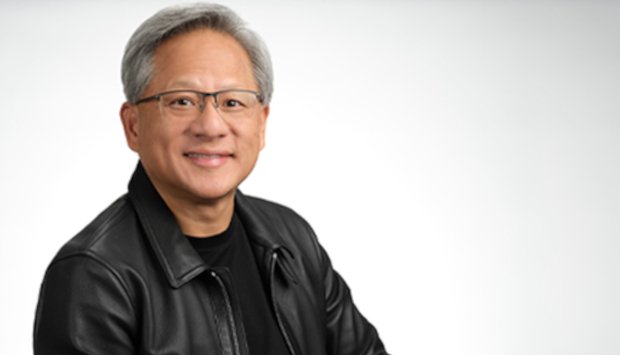
Nvidia boss has some painful lessons for staff
Many of you may have missed an interview with Nvidia CEO Jensen Huang (pictured) for the Stanford Graduate School of Business. I certainly would have if I hadn’t been scrolling through Slashdot. My attention was grabbed because of comments he supposedly made to those present, quoted in Fortune, that “greatness comes from character and character isn’t formed out of smart people – it’s formed out of people who suffered”.
Elsewhere, according to the same report, he said: “To this day, I use the phrase pain and suffering inside our company with great glee. I mean that in a happy way because you want to refine the character of your company.”
In the Fortune article, Nvidia’s founder tells Stanford students their high expectations may make it hard for them to succeed: ‘I wish upon you ample doses of pain and suffering’, might have given people a certain impression of what Huang’s focus was but, having watched the actual interview on YouTube, I came away with an entirely different impression.
Having sat through the entire conversation, I have to report that I wasn’t able to find the section quoted by Fortune. I’m not sure why that is. Feel free to check it out for yourself. Perhaps I missed it or perhaps it’s been edited out since the article was published.
Not to worry, the rest of it was worth a watch. Leaving aside the trademark black leather jacket that seems to be a source of fascination to many, I was interested in quite a few things he actually had to say.
Starting with Huang’s comments when asked what it was like after Nvidia lost 80% of its market capitalisation. Comparing it to how he felt as the company’s valuation rocketed in recent times, he replied: “My pulse was exactly the same.”
He added it was important to “always gut-check back to your core, go back to your core and go back to work”. He said it was important to put things in perspective by acknowledging that while the stock price may have changed, physics and gravity did not.
Huang stressed that part of his philosophy was that “no task is beneath me. I used to be a dishwasher” adding he had also cleaned toilets “and some of them you can’t unsee”.
Nvidia has a relatively flat management structure with 50 direct reports to Huang. He claimed he could not understand why CEOs felt information could only be entrusted to a tiny handful of people who, in turn, would only share it with a small number of others. “I don’t believe in a culture, in an environment, where the information you possess is the reason why you have power,” he commented, arguing that the management team at Nvidia exists in service of all the other people in the company.
Huang described his job as creating the conditions for people at the company to do their life’s work. “I have to create a circumstance where you understand the context, which means you have to be informed,” he added. This meant ensuring there were as few “layers of information mutilation” in the company.
He defined Nvidia as a company that sought to create technology and create markets. It got its inspiration not from the size of a market but from the importance of the work, he argued, because the importance of the work was an early indicator of the future market.
A big question to ask was “If we didn’t do it, would it happen without us?”. Huang argued that it was good for the company “to be lazy about things that other people always do, can do”. He said that if something could happen without Nvidia’s involvement, “it gives me tremendous joy actually. And the reason for that is, could you imagine, the world got better and you didn’t have to lift a finger”.
A more important perspective was to look at areas where if Nvidia did not do the work, it wouldn’t be done. He added: “If the work is hard, and that work is impactful and important, then it gives you a sense of purpose.”
Asked for a parting piece of advice, he replied: “Have a core belief, gut-check it every day, pursue it with all your might, pursue it for a very long time, surround yourself with people you love and take them on that ride.”







Subscribers 0
Fans 0
Followers 0
Followers